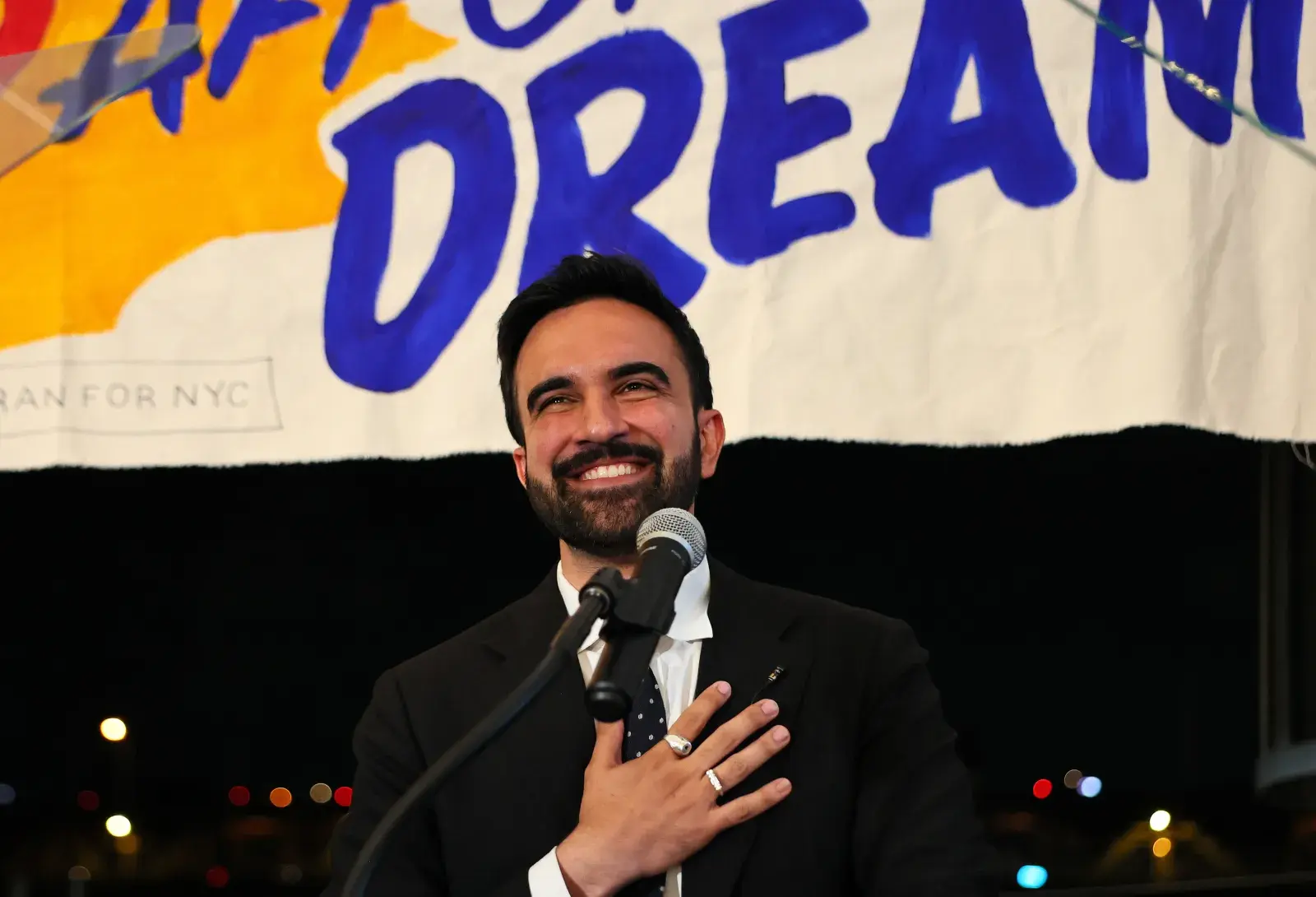Iran will rebuild its nuclear sites with "greater strength," but is committed to not weaponizing its nuclear facilities, the country's president said on Sunday.
Why It Matters
The U.S. carried out strikes on several Iranian nuclear sites in June, which the administration hailed as having "obliterated" Tehran's ability to make the leap toward an operational nuclear weapon. Other assessments have been more cautious on how much damage the U.S. strikes managed to do on deeply buried underground sites and where Iran may still store highly enriched uranium.
Tehran has always said its nuclear program is peaceful and it is not intending to make a nuclear bomb, but international observers believe the country has enriched uranium far beyond what is needed for non-nuclear use.

What To Know
Iran's nuclear plans are designed to “meet the essential needs of the people and enhance national welfare," Masoud Pezeshkian said during a visit to the Atomic Energy Organization of Iran (AEOI) on Sunday, according to state media.
Tehran will build eight nuclear power plants, with help from Russia, on its northern and southern coastlines, AEOI chief Mohammad Eslami said on Sunday, according to Iranian media.
Newsweek has reached out to the State Department and Iran's Foreign Ministry via email for comment.
Satellite imagery published by the Center for Strategic and International Studies (CSIS) think tank last month showed renewed activity at its nuclear facilities.
Iran is not actively enriching uranium, but fresh movement has been detected at its nuclear sites, Rafael Grossi, the head of the International Atomic Energy Agency (IAEA), the U.N.'s nuclear watchdog, said on October 29.
Iran still has hold of uranium enriched at 60 percent, and it is "very, very important" for international investigators to work out how it's being used, Grossi told The Associated Press last week. Tehran could build as many as 10 nuclear bombs with its stockpile, should it take the step to weaponizing the material, he said.
The IAEA inked an agreement with Iran in September that Grossi described at the time as a "step in the right direction" on the road to nuclear negotiations. Iran had paused all cooperation with the agency after its brief war with Israel this summer and the U.S. strikes. The IAEA said it had lost track of Iran's nuclear material inventories.
The U.K., France and Germany reimposed sanctions on Iran shortly after the IAEA and Iran reached their agreement. The countries had warned in July they would restore the embargoes unless Iran reopened talks on its nuclear program immediately and produced concrete results by the end of August.
A 2015 agreement known as the Joint Comprehensive Plan of Action (JCPOA), or simply as the Iran nuclear deal, officially expired last month. The agreement loosened sanctions on Iran in exchange for fresh constraints on the country's nuclear development. U.S. President Donald Trump pulled out of the agreement and Iran later abandoned provisions of the plan and forged ahead with its nuclear program.
Iran’s Foreign Minister Abbas Araghchi said on Saturday that Tehran was willing to engage indirectly with the U.S. on nuclear talks, but would not give up its missile capabilities. Western powers involved in negotiating the JCPOA a decade ago tried to limit weapons sales to and from Iran, as well as the country's ballistic missile development.
Trump warned in July he could order new attacks on Iranian nuclear sites if Tehran restarted operations at the bombed facilities.
What People Are Saying
“Only a fraction of its [nuclear technology] applications relate to weapons,” Iranian President Masoud Pezeshkian said.





















